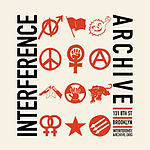All Nations Baptist Church
Churches in BrooklynKorean churches in the United StatesKoryo-saram organizations
All Nations Baptist Church (Russian: Баптистская церковь Всех Наций) is a Russian-language Baptist congregation in Brooklyn, New York City, United States. It shares facilities with the Park Slope Community Church. The congregation is often associated with Koryo-saram: ethnic Koreans of the mainland former Soviet Union. It has been described as the only such Koryo-saram church in New York City.
Excerpt from the Wikipedia article All Nations Baptist Church (License: CC BY-SA 3.0, Authors).All Nations Baptist Church
12th Street, New York Brooklyn
Geographical coordinates (GPS) Address Nearby Places Show on map
Geographical coordinates (GPS)
| Latitude | Longitude |
|---|---|
| N 40.6679 ° | E -73.9888 ° |
Address
Park Slope Community Church
12th Street 251
11215 New York, Brooklyn
New York, United States
Open on Google Maps







